As cannabis laws evolve across the U.S., many employers are left wondering where THC testing fits into their workplace safety programs. Should you still test for marijuana? What if it’s legal in your state? What if someone uses CBD and fails a test?
The truth is: THC testing isn’t going away, especially in safety-sensitive industries. But understanding what these tests reveal (and what they don’t) is key to making informed, compliant decisions for your workforce.
THC Testing: What It Really Measures
Standard drug tests screen for THC metabolites, not current impairment. This means:
-
A positive result indicates prior use, not necessarily intoxication at work.
-
THC can remain detectable for days or even weeks, depending on frequency of use, metabolism, and test type.
-
CBD products may still contain trace amounts of THC, leading to unintentional positives.
That’s why it’s important to pair test results with clear policies and context—not just cutoffs.
Why Employers Still Test for THC
Despite legalization in many states, employers continue testing for good reason:
Safety-Sensitive Environments
Industries like transportation, construction, and manufacturing require full cognitive function. THC can impair memory, reaction time, and motor skills—putting workers and others at risk.
Federal Regulations
DOT and other federal agencies still mandate THC testing for regulated roles, regardless of state laws.
Liability Concerns
Without a testing policy, employers may be vulnerable to legal claims if an impaired employee causes harm on the job.
Workplace Culture
Testing helps deter unsafe behavior and sets expectations for professional conduct.
How to Navigate THC Testing in a Changing Landscape
Here’s how your company can balance compliance, safety, and fairness:
-
Update your drug and alcohol policy to reflect state laws while maintaining safety standards.
-
Educate employees about what THC tests detect—and how long after use they may show up.
-
Choose the right test type (urine, oral fluid, or hair) based on your needs for detection window and accuracy.
-
Consider Medical Review Officer (MRO) oversight for evaluating positives and protecting employee rights.
The truth about THC testing is that it’s not black and white. It requires a thoughtful approach, clear communication, and alignment with both regulatory guidelines and your company’s values. At Workplace Safety Screenings, we help employers navigate this evolving issue with confidence, so safety and fairness go hand in hand.
Need help updating your drug testing policy or interpreting THC test results?
Workplace Safety Screenings is here to guide you with expert insight and compliant solutions.

.png?width=500&height=500&name=Blue%20and%20White%20Classic%20Shield%20Financial%20with%20Star%20Logo%20Design%20(1).png)


